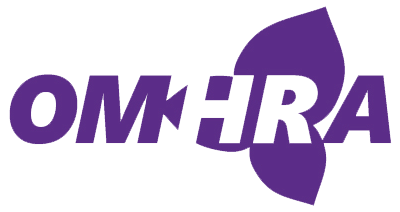
Janet Stewart, Queen’s IRC Facilitator, 2023
The field of human resources has experienced incredible change and transformation over the last five years. These include the impacts of the COVID-19 pandemic and changing expectations about work, to significant labour market challenges and new views of organizations’ responsibilities related to issues of equity. There has been much to navigate within this context.
Accompanying these external influences and pressures are equally dizzying shifts occurring in our identity as human resource leaders. With a view to every corner of an organization, human resource leaders are critical players who contribute invaluable perspective and insight on how to leverage human, team and leadership potential.
This makes it an opportune time to pause and reflect on where we are and how to prepare for what’s ahead. How do we define ourselves within this context of increased complexity? What are our priorities and critical “must have” skills to support us within this environment? Who are we as human resource leaders and what roadmap should we be using to gain insight into our leadership journey?
Refining our focus to the “what” of HR leadership
A helpful tool and starting place to explore these important questions is the HR Competency Model designed by the RBL Group.1 Co-founded by renowned author and HR expert, Dave Ulrich, the RBL group has partnered with the University of Michigan for over 30 years to collect a significant amount of data from organizations around the globe to examine three questions:
- What competencies do HR professionals need to deliver personal, stakeholder and business results?
- What qualities exemplify an effective HR department?
- In what way can HR create circumstances to maximize business and organizational success?
In 2021, the group completed its eighth round of the comprehensive Human Resource Competency Survey, which identified shifts in how HR professionals’ success factors are characterized. Of note is that these most recent findings identified the importance of moving from a list of “traits” that HR professionals “need to develop” and instead focused on “actions” to support business and organizational success. This interesting shift may reflect the imperative that HR professionals be increasingly agile and responsive to their environmental context. The last five years have certainly shown the success with which many HR professionals have been able to do this.
The latest study recommended that HR professionals focus on the following five actions to be effective leaders within this context:
- Foster collaboration: The ability to build trusting relationships with others to achieve organizational goals.
- Mobilize information: The ability to anticipate impacts on the organization – from technological innovations to social challenges – and then acquire, analyze and apply information to navigate change and support better decision-making.
- Simplify complexity: The ability to sift through vast amounts of information to understand a situation, apply critical thinking, and respond calmly on issues of greatest importance.
- Advance human capability: The ability to understand what skills are needed for an organization to effectively meet the demands of its competitive environment. This entails ensuring that the organization supports the development of its internal talent as well as knowing which practices, systems and structures are required for the organization to succeed. This action also encompasses HR’s important contributions in creating a workplace that embraces diversity, equity, and inclusion.
- Accelerate business: The ability of HR professionals to contribute to bottom-line results through understanding the organization’s external environment, how it competes in the marketplace and how it creates value for stakeholders, clients and customers.
Each of these five actions is worthy of exploration and contextualization within your organization. As an approach of discovery, HR leaders may want to layer each of these five actions onto their unique organizational and business context to identify which should be prioritized and enhanced. This will inform strategy and enable you to measure impact across the organization.
Summary
The HR Competency Model shared here is only one of many frameworks available to HR leaders. You may find that a different framework is better suited to your needs. Whichever you choose, a framework has value in providing context and support for your work as an HR professional – creating guideposts to keep you on track in what is an increasingly complex landscape.
As HR professionals, we have seen how the global shifts in values over the last five years have led to new organizational pathways and approaches to HR practice and leadership. There are no indications that this rate of transformation is slowing. What won’t change is the importance of the HR leader. It is exciting and thrilling to be part of the journey.
Presented by

Archives
Categories
- Attraction and Recruitment
- Benefits
- Celebrating Success and Recognition
- Change Management
- Conflict Resolution and Coaching
- Culture
- Diversity, Equity and Inclusion
- Emotional Intelligence
- Employee Engagement
- Employee Performance
- Labour Disruption
- Mentoring
- OMHRA activities
- OMHRA Events
- Psychological health and safety of the HR professional
- Recruitment
- Recruitment and Retention
- Retention
- Uncategorized
- Unique ideas for recruiting in a tight job market
- Wellness
Recent Posts
- How Leadership Development Coaching Provides Better Outcomes
- Better Leadership: Focus on a Coach Approach
- Creating a Psychologically Safe Workplace
- Group Health Insurance – The Impact of Preferred Pharmacy Networks on Employees’ Mental Health
- Provide Real Support For Your Mid-Career Team’s Psychological Resilience
